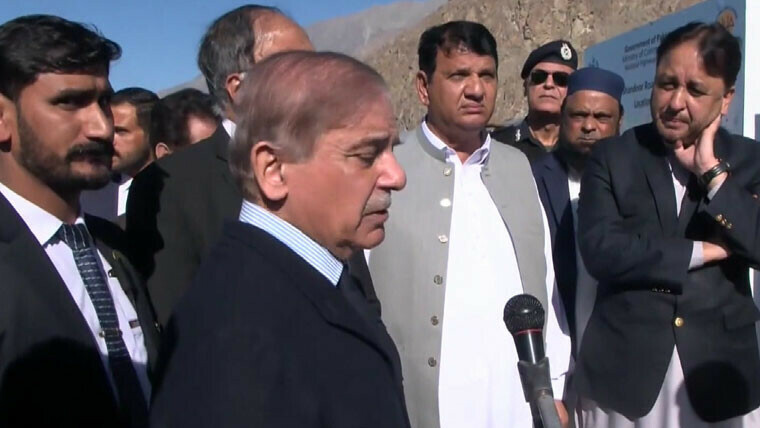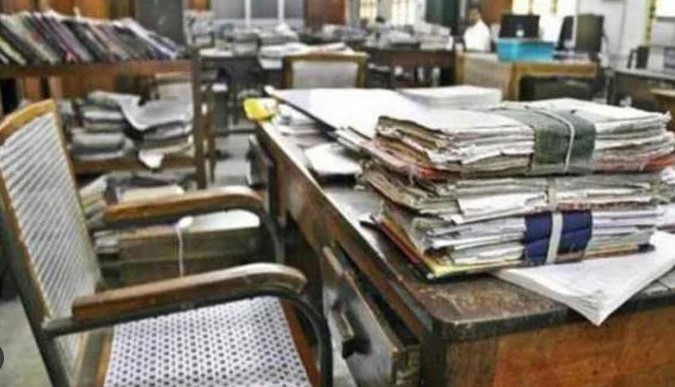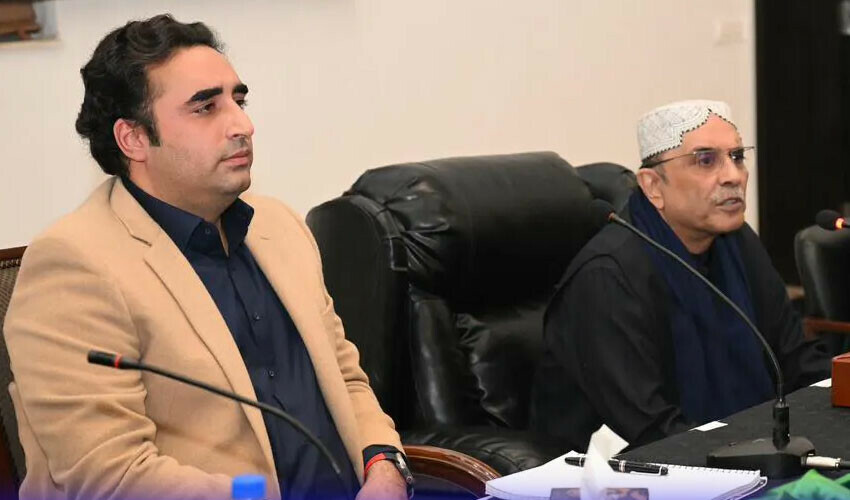POLITICS & POLICY MAKING

Pakistan: Prime Minister Muhammad Shehbaz Sharif on Thursday inaugurated the Bober Model Village in Ghazar district, Gilgit-Baltistan, built to provide shelter for flood victims of 2022. The inauguration marks a significant step in the rehabilitation efforts for the people who suffered due to the devastating floods in the region, brought on by climate change.
During his one-day visit to Gilgit-Baltistan, Prime Minister Shehbaz Sharif attended a ceremony where he distributed ownership papers for newly constructed houses to the affected families. This marks a major milestone in the recovery process, as the Bober Model Village, built on 110 kanals of land, offers newly constructed homes with modern amenities to those displaced by the disaster.
New Homes for Flood Victims
In total, 62 houses have been constructed for the flood-affected families. Each house in the model village includes a solar-powered store, a kitchen, two bathrooms, and two rooms, ensuring a higher standard of living for the residents. The development was carried out under the directives of the Prime Minister, with special attention to providing quality housing and essential infrastructure.
During the briefing, the Prime Minister was informed that the construction of the houses was part of a broader recovery plan aimed at rebuilding communities devastated by the 2022 floods. He was also briefed on the ongoing construction of key road infrastructure in the region, including the 216 km-long Gilgit-Shandur highway, which will connect Gilgit with remote areas like Gagoch, Tendai, and Tandai. This road is expected to be completed by November 2025 and will play a vital role in improving connectivity and access to services for the region.
Prime Minister’s Address
Speaking at the inauguration ceremony, Prime Minister Shehbaz Sharif recalled his visit to Ghazar in August 2022, a time when the area was ravaged by floods. The devastation was a direct result of climate change, he noted, and it had left the entire village in ruins. "That was a sad day in history, but today, we are witnessing the rebuilding of a new settlement, a new life for the victims," he said.
He expressed immense satisfaction in distributing the ownership papers to the flood victims, saying that seeing their happiness brought him great joy. "Today, there is a sense of happiness with the construction of this new township. The quality of houses built here is commendable, and I am proud of the efforts made to rebuild these homes," the Prime Minister added.
In addition to the new homes, Prime Minister Sharif announced a fund of 5 million rupees (now 57 lakh rupees) for the family of a victim girl, Qandeel, whose entire family had tragically perished in the floods.
Infrastructure Development Plans
The Prime Minister also emphasized the importance of further development in the Bober Model Village. He directed the authorities to begin work immediately on constructing a school and a dispensary in the village. "Modern facilities should be provided in the dispensary on an emergency basis, ensuring that the residents have access to healthcare services right away," he said.
Commitment to Accountability
During his speech, the Prime Minister also stressed the importance of ensuring that development projects, including those in the model village, are completed to the highest standards. He directed that the third-party verification system be employed to ensure that the construction work meets quality expectations before payments are made. This step is part of his broader commitment to ensuring accountability and transparency in the government's rehabilitation efforts.
A Step Toward Recovery
The inauguration of Bober Model Village is a key step in the long process of recovery for the people of Ghazar and other flood-affected areas in Pakistan. The construction of these houses provides hope and stability to families who lost everything in the floods, offering them not only shelter but also a chance to rebuild their lives.
With the announcement of additional infrastructure projects, including roads, schools, and healthcare facilities, the government aims to create a more resilient community that can withstand future challenges posed by climate change. The ongoing efforts reflect Pakistan's broader commitment to climate adaptation and sustainable development, ensuring that vulnerable communities are protected and supported in the face of future disasters.




